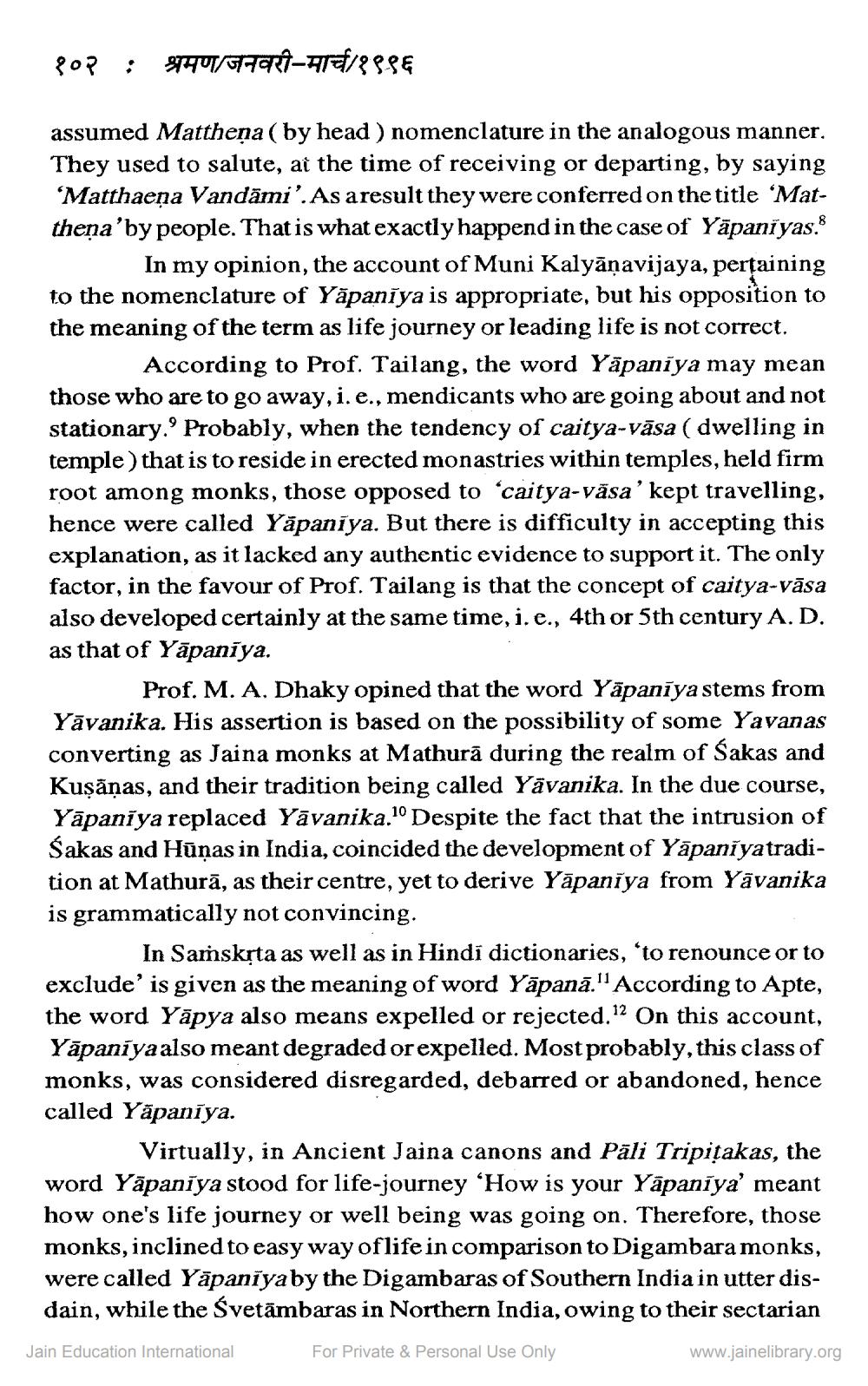________________
१०२ : श्रमण/जनवरी-मार्च/१९९६
assumed Matthena (by head ) nomenclature in the analogous manner. They used to salute, ai the time of receiving or departing, by saying ‘Matthaena Vandāmi'. As aresult they were conferred on the title ‘Matthena'by people. That is what exactly happend in the case of Yāpaniyas.S
In my opinion, the account of Muni Kalyāņavijaya, pertaining to the nomenclature of Yăpanīya is appropriate, but his opposition to the meaning of the term as life journey or leading life is not correct.
According to Prof. Tailang, the word Yapaniya may mean those who are to go away, i.e., mendicants who are going about and not stationary. Probably, when the tendency of caitya-vāsa ( dwelling in temple) that is to reside in erected monastries within temples, held firm root among monks, those opposed to 'caitya-vāsa'kept travelling, hence were called Yăpanīya. But there is difficulty in accepting this explanation, as it lacked any authentic evidence to support it. The only factor, in the favour of Prof. Tailang is that the concept of caitya-vāsa also developed certainly at the same time, i.e., 4th or 5th century A.D. as that of Yāpaniya.
Prof. M. A. Dhaky opined that the word Yāpanīya stems from Yāvanika. His assertion is based on the possibility of some Yavanas converting as Jaina monks at Mathurā during the realm of Sakas and Kuşāņas, and their tradition being called Yāvanika. In the due course, Yāpaniya replaced Yāvanika. Despite the fact that the intrusion of Śakas and Hūņas in India, coincided the development of Yāpaniyatradition at Mathurā, as their centre, yet to derive Yāpaniya from Yāvanika is grammatically not convincing.
In Samskrta as well as in Hindi dictionaries, 'to renounce or to exclude' is given as the meaning of word Yāpanā.". According to Apte, the word Yāpya also means expelled or rejected. On this account, Yāpaniyaalso meant degraded or expelled. Most probably, this class of monks, was considered disregarded, debarred or abandoned, hence called Yāpaniya.
Virtually, in Ancient Jaina canons and Pāli Tripițakas, the word Yāpaniya stood for life-journey 'How is your Yapaniya' meant how one's life journey or well being was going on. Therefore, those monks, inclined to easy way oflife in comparison to Digambara monks, were called Yapaniyaby the Digambaras of Southern India in utter disdain, while the Svetāmbaras in Northern India, owing to their sectarian
Jain Education International
For Private & Personal Use Only
www.jainelibrary.org




